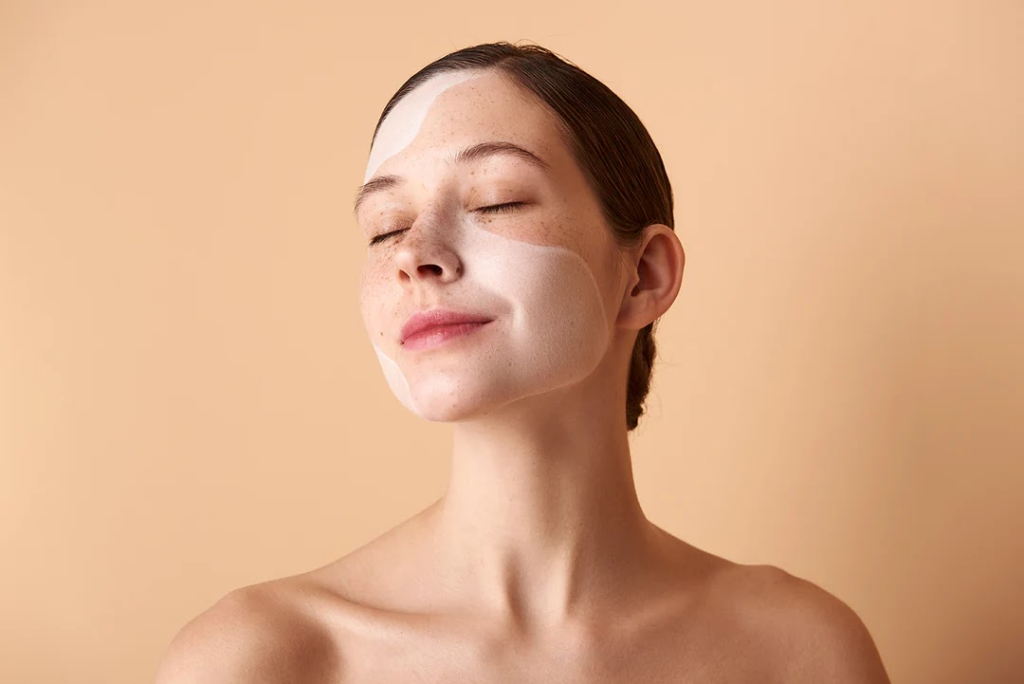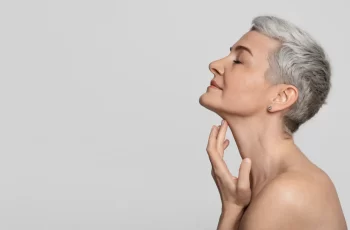
What are peptides? Your introduction to peptides for skin
Polypeptides, or peptides, have been a buzz word in the skincare world now for quite some time. Now, we don’t know about you, but the benefits of this miracle, Botox in a bottle, are still a little lost on us. So, if you are wanting to get to the bottom of these age-fighting products read on to find out more.
What are peptides in skincare?
Are you ready for the science lesson? Good, peptides are small chemical compounds that make up short chains of amino acids. It is these acids that develop protein that form the building blocks for your skin. Peptides are able to send messages to other areas of the skin, such as collagen, and encourage more to be produced after you have topically applied them to your skin.
This may sound complicated, but it’s quite easily achieved due to the fact that peptides are fragmented pieces of proteins and when formulated into skincare products with the idea that these smaller fragments of protein are able to penetrate their way further down into the lower layers of the skin and kick start the production of more collagen, making your face appear more youthful, pretty clever don’t you think?
What do peptides do for your skin?
Polypeptides are found a lot in professional skin treatments after procedures such as micro-needling or laser. The peptides penetrate even further into the skin and help the skin to heal and recover quicker. There is also a multitude of other skin benefits, though this could divide a few as there are a lot of different theories about peptides. Generally speaking, there are three main categories of polypeptides: signals peptides, carrier peptides, and peptides that inhibit nerve signals, all of which help towards benefiting the skin.
Here are the main benefits you will find peptides have on the skin:
Peptides strengthen the skin barrier- By applying peptides to the skin you are able to increase the number of skin cells you have, this then leads to helping to improve the skin barrier that can encounter various levels of damage every day from UV rays, pollution and other environmental stresses.
Peptides reduce the appearance of fine lines- peptides help give the skin an all-over boost of youth with the increase of collagen produced resulting in a younger complexion.
Peptides provide anti-inflammatory properties- you will find that peptides also contain a number of antioxidants that can help calm and soothe the skin making inflammations less common and heal the skin barrier.
Peptides make the skin more firm- As mentioned before, the peptides that inhibit nerve signals are able to smooth any fine lines and restore elastin to the skin and turning back the clock.
Peptides lock in hydration- When we age our skin is no longer able to hold on to enough water, making it more dry, dull and showing signs of ageing like fine lines more quickly. Peptides lock in moisture and keep the skin hydrated and full of bounce.
Peptides smooth out the complexion- if you find you have a concern with uneven skin tone or texture, peptides could be your answer! With the boost in collagen, you will find your overall complexion will improve and over time become more even.
There are the main benefits of using peptides in your routine. As I have mentioned before you will find some mixed reviews on whether peptides are powerful enough to work alone and delivering so many results single handled. Others believe that peptides should be used in a cocktail formulation containing other skin-restoring ingredients such as antioxidants. It is with this mixture of potent active ingredients that you will find truly impressive results with the complexion looking younger.
How to introduce peptides to your skincare routine
You will find polypeptides in a number of skincare products, from face washes, moisturisers and serums but you have to take into consideration which product would work best for you and your skin. Polypeptides are safe to use for any skin types and won’t cause any irritation to the skin. But it’s always advisable to check with a dermatologist if you’re unsure.
To give peptides enough time to absorb and work deep into the skin it is best to opt for serums and moisturisers as these products stay on the face longer than face washes that will eventually need rinsing away with water. To really reap the rewards of using peptides in your skincare remember to team them with other powerful ingredients to reduce any signs of ageing and rejuvenate any lacklustre complexion.
What are the side effects of using peptides?
Peptides themselves have no real side effects and are generally good for all skin types to use. There is however something to remember and that is that you shouldn’t use peptides whilst using Alpha Hydroxy Acids (AHAs) and Beta Hydroxy Acids (BHAs) this is because the facial acids chemically exfoliate the skin and are too harsh for peptides to penetrate into the layers of the skin, meaning the peptides basically dissolve and become useless. If you are wanting to use peptides with your skincare routine that already has products containing AHAs and BHAs try adapting the routine and alternating which product you will use during the mornings and evenings.
There you have an introduction to what peptides actually are and how they will benefit your skin. Though there are is a variety of conflicting opinions on how potent peptides are and their skin benefits in our opinion if a product claims to improve the signs of ageing, repairs the moisture barrier and gives the face a firm, flawless luminosity, all of this without causing skin reactions or irritation. Well, in that case, we will take a bottle or two and see how we get on! Don’t worry, we’ll let you know how we get on!


